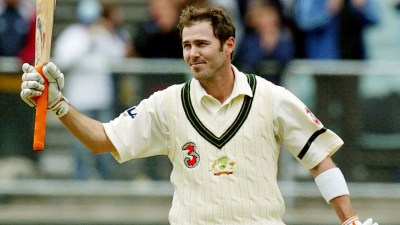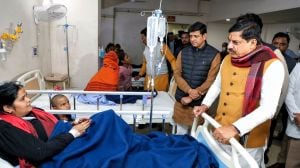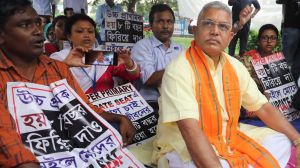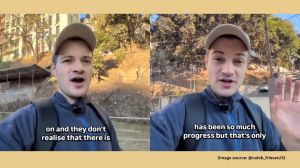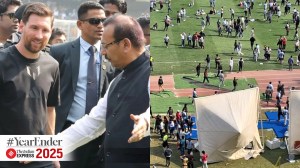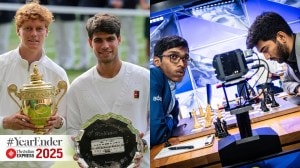How Anju Did It
She won her first event 8212; a lemon-and-spoon race, at age four 8212; after hours of practice. Her finest hour, the bronze medal at the ...

She won her first event 8212; a lemon-and-spoon race, at age four 8212; after hours of practice. Her finest hour, the bronze medal at the World Athletics Meet in Paris last week, was five years in the making.
More than on-field effort, though, Anju Bobby George8217;s success story is one of detailed, intensive planning 8212; which should be the real inspiration for her peers and juniors.
So how did Anju go from being ranked 61 in 2001 to sixth in the world at present? The story prefaces in 1998, when Bobby George gave up his career as a champion triple-jumper to coach Anju. Within a year she was national champion in both long and triple jumps and qualified for the Sydney Games. An injury prevented her from making the Olympics but in June 2001 she set the national record with a jump of 6.74 metres she equalled that distance last year.
|
ALL IN THE FAMILY |
|
|
Anju8217;s own prodigious talent was helped by the extraordinary family she married into. Her husband Bobby, a champion triple-jumper, was the youngest of eight brothers moulded by their father into a volleyball team. The George Brothers would play on the volleyball court in their Kerala home at Peravoor and, though all were adept, Jimmy was the star. He played for India and on the European circuit before being killed in a car accident in the 1980s. Jimmy8217;s popularity 8212; he played the sport for 17 years 8212; was such that the Italians, the World Cup winners, constructed an indoor stadium and named it after him. Today, Anju benefits from the computerised log the family maintains of her performances, recording every detail of her progress. |
That8217;s when she began to realise that she could aim higher 8212; or longer. The key to greater success, the couple 8212; now married 8212; realised, was constant international exposure. They began communicating with world record holder Mike Powell and, last March, also sent a proposal for foreign training to the Sports Ministry.
That same month, the Georges met Powell in Birmingham and firmed up the training schedule. The ministry gave its approval in April and, a fortnight later, Anju and Bobby left for California.
Once there, they began working on the next goal. Negotiations were on with leading US sports management firm HSI; it took a series of good performances by her on the circuit before Anju joined Olympic gold medallists Maurice Greene world 100m champion and Allen Johnson, among others, as the only Indian non-cricketing sportsperson to be taken up by a top management firm.
Joining HSI wasn8217;t about schmoozing and socialising, however; the American firm opened doors 8212; the Paris meet, for one 8212; that would otherwise have remained closed to most Asian athletes.
Meanwhile, she was making progress with Powell. Though his caoching was obviously excellent 8212; the best training facilities and advice on technical perfection, says Bobby 8212; what was equally important was his experience at the very top level of sport. Especially in choosing and preparing for events.
However, there were some problems that even Powell couldn8217;t help her with; international visas, for one. 8216;8216;It took four days in Los Angeles to get a visa for Rome and three days there for a visa to France. But for some helping hands in the Indian missions, Anju could not have participated at the World meet,8217;8217; says Bobby.
What the experience of the past few months has shown is the importance of training abroad. Bobby points out some very mundane, practical problems that would nonethelesss affect an athlete8217;s performance. 8216;8216;In Europe and the US, one can train from from 8 a.m. to 9 p.m. But in India, be it Patiala or Bangalore, the SAI facilities operate according to some specific timings. Unless you knew the officials, you can8217;t extend the training schedule beyond a particular time. They can8217;t be so rigid about the timings,8217;8217; he says.
As for the money, both Anju and Bobby admitted that it costs quite a lot 8212; travel, stay and training in the US and Europe. 8216;8216;We8217;re managing from the amount sanctioned by the Sports Ministry, cash awards and help from the Tamil Nadu government. But corporate houses haven8217;t responded,8217;8217; says Anju. Bobby said the corporate houses approached wanted to see results before funding.
The results are now there. And things should get even better; you can bet the Georges have a plan for that.
- 01
- 02
- 03
- 04
- 05


